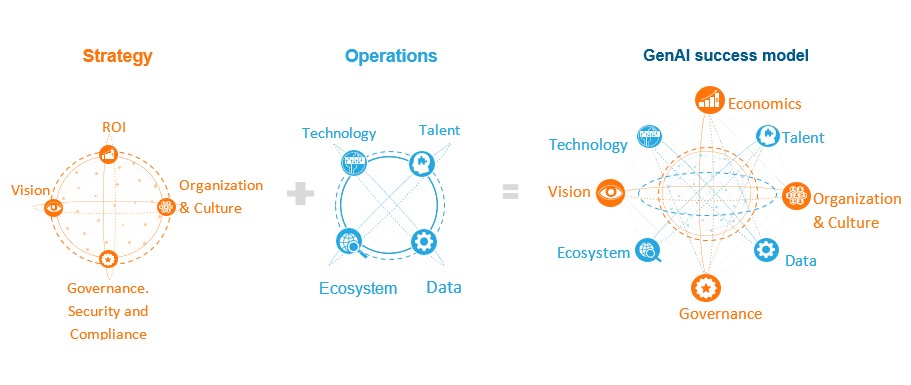How a Psychology Background Makes for Better AI Adoption
If you scroll through your LinkedIn feed, you'll likely come across numerous posts praising how the latest AI models will revolutionize businesses. However, the key factor that determines a business's success with AI goes beyond just the technology itself – it's deeply rooted in the organization's culture. Effective AI adoption is more about change management than simply implementing a new AI model.

Embracing Change with a Psychology Background
Having a background in psychology, I have realized the importance of applying foundational psychological concepts to drive successful AI adoption in businesses. By understanding human behavior and motivations, business leaders can effectively guide their teams through the AI transformation process.
One of the critical challenges faced during AI implementation is fear – fear of acquiring new skills, fear of rapid innovation, and fear of job displacement due to AI. Addressing these fears requires a human-centric approach, focusing on strengths, well-being, and growth rather than solely on the negative aspects of AI.
By reframing the narrative surrounding AI and emphasizing the potential for personal and professional development, businesses can foster a culture of enthusiasm and experimentation, setting the stage for successful AI integration.

Building a Positive Company Culture
To ensure a smooth transition to AI technologies, organizations must understand how individuals learn new skills and habits. By tailoring learning plans to each employee's existing knowledge and preferences, companies can empower their teams to develop AI skills comfortably and effectively.
Integrating AI into existing tools and processes is essential for demonstrating its value to employees. By showcasing how AI can enhance productivity and decision-making within familiar workflows, organizations can encourage widespread adoption and utilization of AI capabilities.
Managing Risks and Biases in AI Adoption
As businesses incorporate AI into their operations, it's crucial to assess potential risks and biases associated with AI technologies. Tools that verify AI outputs and mitigate biases play a vital role in ensuring the responsible and effective use of AI.

Understanding common cognitive biases, such as the availability heuristic and optimism bias, is essential for navigating the complexities of AI adoption and decision-making. By being aware of these biases, businesses can develop strategies to mitigate risks and optimize the performance of their AI systems.
Adapting to the AI Transformation
Successfully navigating the AI transformation requires more than just technological expertise – it demands a deep understanding of human behavior and change management principles. By leveraging psychological insights and fostering a culture of continuous learning and adaptation, businesses can thrive in the era of AI.
As we embrace this new era of technological advancement, organizations must prioritize human-centric approaches and cultivate a culture that values innovation, growth, and collaboration. By combining the power of AI with a deep understanding of human psychology, businesses can unlock new opportunities and drive sustainable success in the digital age.










